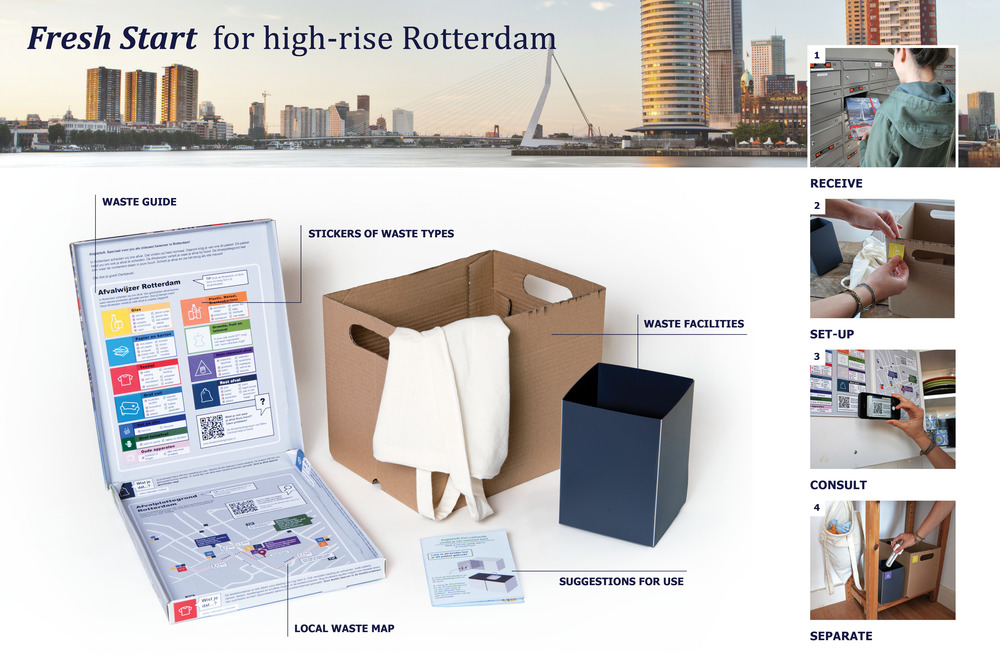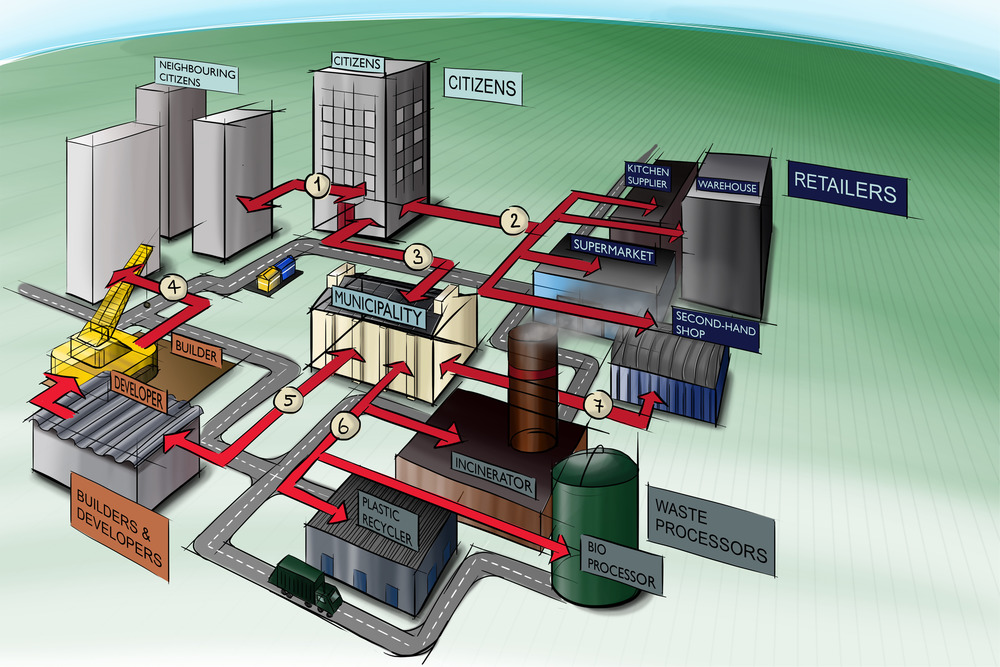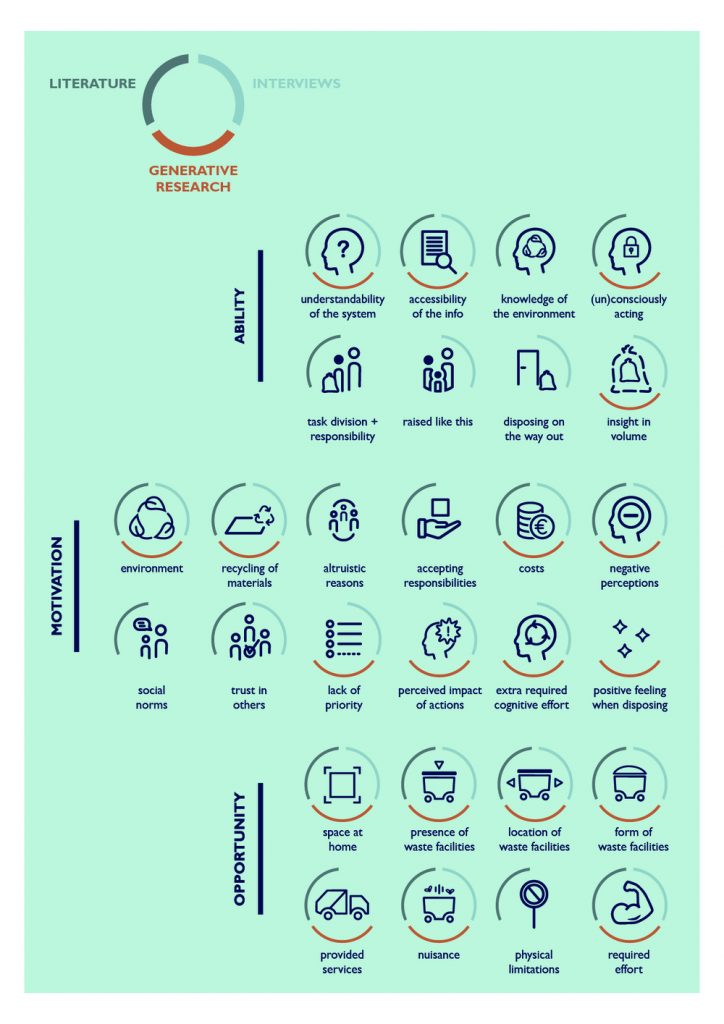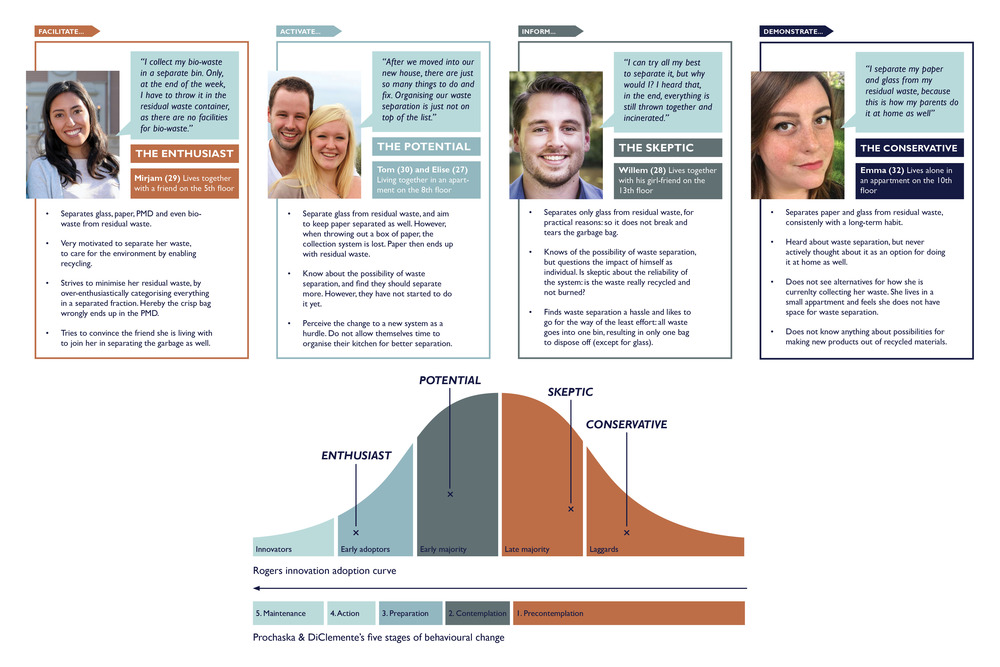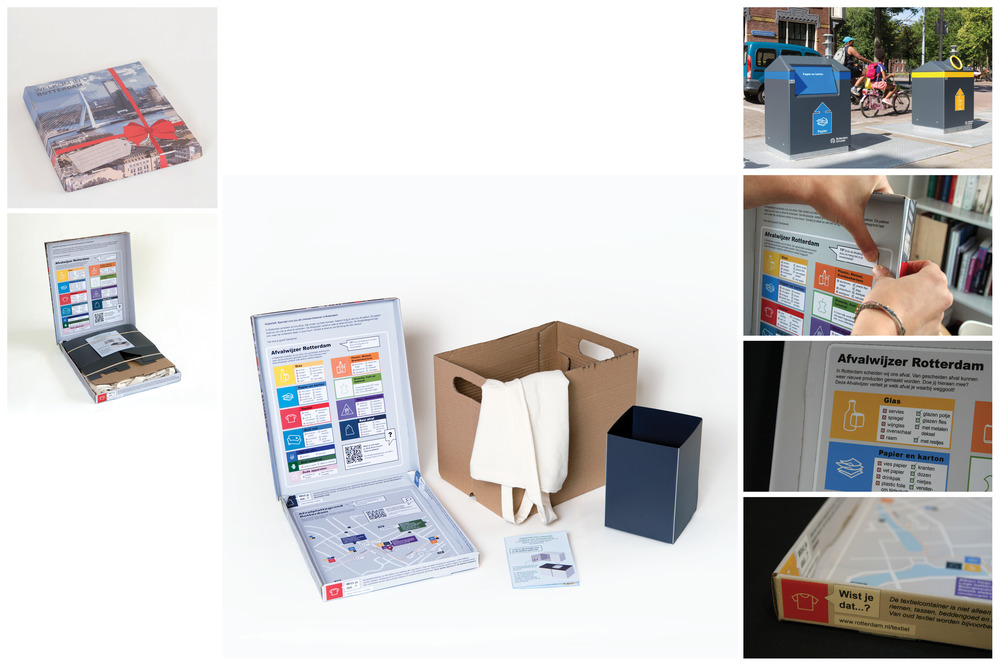Honorable Mention
Fresh Start
Activating household waste separation behaviour in high-rise Rotterdam
Solution
Rotterdam counts many high-rise buildings, where waste separation forms a challenge. In 2017 only 28,4% of Rotterdam’s household waste was separated. Activating citizens’ waste separation behaviour is crucial for achieving the EU’s ambitious goal of 65% waste recycling by 2035. ‘Fresh Start’ triggers high-rise residents to start a waste separation habit in the first month after moving, by actively providing the facilities and information to effortlessly set-up an in-home waste separation system.
Project Description
This project aims to help the City of Rotterdam to support their high-rise residents to improve their waste separation behaviour.
The waste management system of Rotterdam is mapped based on literature and interviews with the Urban Management and Urban Development department. Current separation behaviour is observed by means of collecting 230+ photos of citizens’ in home waste (separation/disposal) set-ups. 27 influencing factors for waste separation behaviour are identified from literature, and from interviews and generative research with high-rise residents. In creative sessions with the City of Rotterdam and residents, ideas are generated and evaluated based on innovativeness, desirability and feasibility. Rapid prototyping and testing several concept variations results in Fresh Start, which is sent to six high-rise residents in a qualitative pilot test.
The City of Rotterdam currently prepares a large scale pilot test including 300 households.
Overview of the Solution
Fresh Start is designed based on thorough research (see Project Description). From human behaviour theory, behaviour can be explained as a combination of one’s motivation, ability, and opportunity. When one’s motivation is low, a low ability needs to be sufficient to trigger action. Behavioural change is a complex process consisting of several stages and can be stimulated by intervention techniques. The moment of moving into a new residency is ideal to accelerate sustainable behaviour, as a change of environment can facilitate behavioural change.
However, residents currently lack a (physical and mental) system for waste separation: to understand the City of Rotterdam’s expectations regarding household waste management (how to separate it, where to dispose of it), they need to search for and visit multiple webpages. Next, they have to create their own physical separation system. The required effort for creating a system (ability) outweighs their medium level of motivation.
Fresh Start lowers the required effort for waste separation by supporting high-rise residents with the set-up of a waste separation system right after moving into their new residencies. Upon registration to the municipal register, new residents automatically receive Fresh Start in their mailbox. Fresh Start consists of a mailbox package including a tailored Waste Map of the neighbourhood including disposal points, a Waste guide with separation instructions and Waste facilities (a waste bin, bag and box). It proactively communicates expectations regarding household waste separation in Rotterdam ánd it provides residents with basic facilities to directly start their own system. It increases high-rise residents’ ability and opportunity while claiming their attention and raising awareness.
Fresh Start is positively evaluated by the pilot test participants regarding helpfulness with household waste separation. “To make starting waste separation as easy as possible is a purpose that this package serves well” – Concludes a high-rise resident (residing at floor 5/23). For the City of Rotterdam Fresh Start offers a feasible behavioural intervention. A higher waste separation rate results in more materials preserved for recycling. This contributes to the Circular Goals of the City of Rotterdam. Also, an increased waste separation rate offers financial benefits, as managing and recycling separated waste results in lower costs than incinerating residual waste.
PROJECT TEAM
Iris Groot Koerkamp
INSTITUTION
Delft University of Technology (DUT), The Netherlands
Category
Product
FACULTY/COURSE ADVISOR
Ir. R.J.H.G. van Heur (Applied Ergonomics and Design) & Dr. ir. J.I.J.C. de Koning (Design for Sustainability)
STAKEHOLDERS
Client: City of Rotterdam (Governmental institution)
Project partner: Inclusive City Hub of the LDE Centre for Sustainability (coorporation of Leiden, Delft, Erasmus Universities)
PROJECT SOCIAL MEDIA
Full MSc Graduation project (report, appendices, poster)
